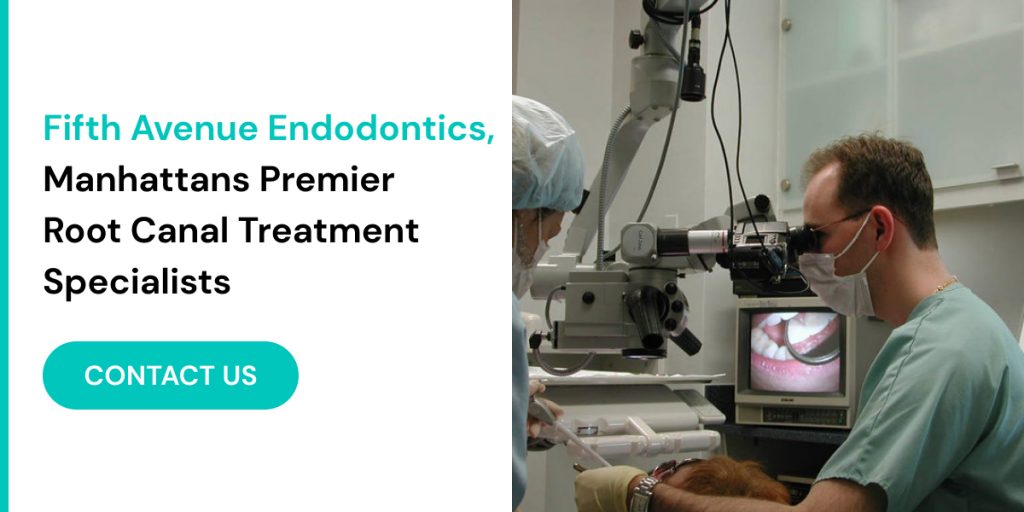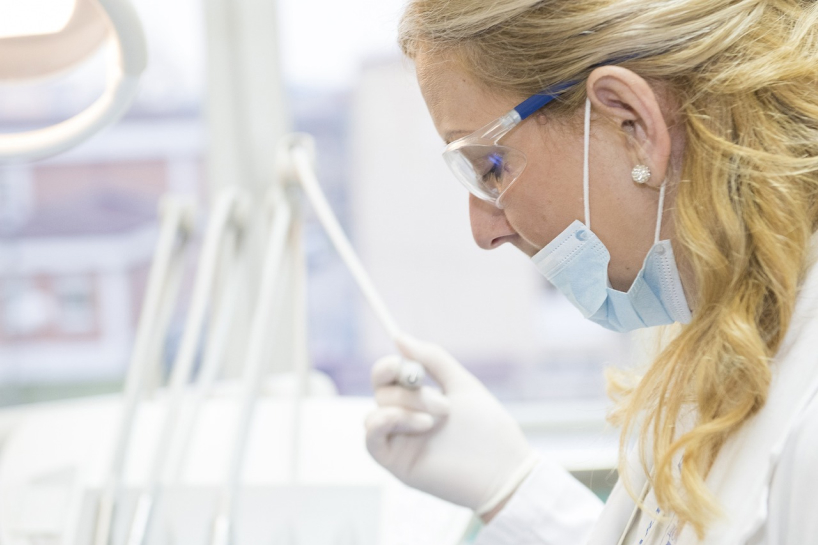For expecting mothers in Manhattan, navigating pregnancy can be a whirlwind of emotions, physical changes, and doctor appointments. From prenatal vitamins and dietary adjustments to ultrasounds and check-ups, your health and the well-being of your developing baby become top priorities. While dental health might not be at the forefront of your mind during this exciting time, maintaining good oral hygiene is crucial for both you and your baby.
Hormonal fluctuations during pregnancy can make you more susceptible to dental problems like gingivitis and tooth decay. Left untreated, these issues can lead to more serious complications, potentially impacting your overall health and even increasing your risk of preterm birth. Experiencing a toothache during pregnancy can be particularly stressful, adding another layer of discomfort to this transformative experience.
If you find yourself needing a root canal treatment in Manhattan while pregnant, you might have questions and concerns. This blog post from Fifth Avenue Endodontics, led by the esteemed Dr. Iofin, aims to address those concerns and provide information on the safety and considerations for root canal surgery during pregnancy. By understanding the process and the special considerations for expecting mothers, you can approach any necessary dental procedures with more confidence and ensure a smooth path towards a healthy smile for both you and your baby.
Is Root Canal Treatment Safe During Pregnancy?
The good news is that with proper precautions, root canal treatment in Manhattan is generally safe for pregnant women. The American Dental Association (ADA) and the American Congress of Obstetricians and Gynecologists (ACOG) both endorse the safety of root canal procedures during pregnancy, particularly in the second trimester (between 14 and 20 weeks). Here’s why:
- Fetal Development: The first trimester is a critical period for organ formation in your developing baby. By the second trimester, these major organs have already formed, and the risk of complications associated with dental procedures, including root canals, is significantly lower.
- Treatment Necessity: Leaving an infected tooth untreated can pose a greater risk to your overall health and potentially impact your pregnancy. Untreated dental infections can spread throughout the body, and research suggests a possible link between severe oral health problems and preterm birth or low birth weight. Addressing the infection through a root canal can help prevent these potential complications.
- Modern Techniques: Advancements in dental technology and anesthetics allow Dr. Iofin at Fifth Avenue Endodontics to perform root canal treatments efficiently and comfortably. X-ray procedures, when necessary, utilize minimal radiation with lead aprons for additional protection. Local anesthetics are safe for use during pregnancy and effectively numb the area around the tooth for a pain-free procedure.
It’s important to remember that every pregnancy is unique. While the second trimester is generally considered the safest window for non-emergency dental procedures like root canals, consulting with both your OB-GYN and Dr. Iofin will help determine the best course of action for your individual situation. They can discuss your specific needs and medical history to ensure a safe and successful procedure that prioritizes the health of both you and your baby.

Why the Second Trimester is Ideal for Root Canal Treatment
The first trimester is a whirlwind of change for your developing baby. This critical period focuses on forming the major organs and establishing a foundation for healthy growth. To minimize any potential risks associated with medications or procedures, dentists often recommend waiting until the second trimester to perform non-emergency dental work, including root canals. Here’s a closer look at why the second trimester offers a safer window for this type of treatment:
- Reduced Risk of Birth Defects: During the first trimester, the developing embryo is most susceptible to external factors that could impact organ formation. By the second trimester (around 14 weeks), these major organs have already formed, significantly lowering the risk of complications associated with dental procedures like root canals.
- Fetal Development Milestones: The second trimester is often referred to as the “golden period” of pregnancy. Many women experience increased energy levels and a decrease in morning sickness during this time. This can make scheduling dental appointments and undergoing procedures like root canals more manageable and comfortable.
- Focus on Maternal Health: The second trimester allows dentists to prioritize your overall health and well-being. Since a root canal addresses a dental infection, leaving it untreated can pose a greater risk to your health and potentially impact your pregnancy. Addressing the infection during the second trimester can help prevent complications and ensure a smooth path towards a healthy delivery.
It’s important to note that every pregnancy is unique. While the second trimester is generally considered the safest window for non-emergency dental procedures, some situations might require a root canal treatment outside this timeframe. Open communication with both your OB-GYN and Dr. Iofin at Fifth Avenue Endodontics is crucial. They can assess your individual needs and medical history to determine the best course of action, prioritizing the health of both you and your baby.
Special Considerations for Pregnant Women Undergoing Root Canal Treatment
While generally safe during pregnancy, patients undergoing a root canal treatment in Manhattan require some additional considerations. Here at Fifth Avenue Endodontics, Dr. Iofin prioritizes the well-being of both mother and baby. To ensure a smooth and successful procedure, here are some key points to remember:
- Open Communication is Paramount: Maintaining open communication with both Dr. Iofin and your OB-GYN is crucial. Inform them about your pregnancy at the outset and discuss any medications you’re currently taking. This transparency allows Dr. Iofin to tailor your treatment plan and select appropriate local anesthetics that are safe for you and your developing baby.
- Minimizing Radiation Exposure: Dental X-rays are sometimes necessary for accurate diagnosis during a root canal procedure. However, Dr. Iofin utilizes advanced technology that minimizes radiation whenever possible. Additionally, lead aprons are used to further shield your body from any residual radiation.
- Pain Management with Safety in Mind: Local anesthetics are the preferred method of pain management during root canal treatments, and they are generally considered safe for pregnant women. However, understanding your individual comfort level and any concerns you might have is important. Discuss these concerns openly with Dr. Iofin beforehand. He will ensure you receive the appropriate level of anesthesia to manage any discomfort while prioritizing the safety of your baby.
- Medication Adjustments When Necessary: Certain medications used during root canals, such as antibiotics, might not be recommended for pregnant women. Dr. Iofin will discuss alternative medications or adjust the treatment plan if necessary. He may also collaborate with your OB-GYN to ensure any prescribed medications are safe for your specific situation.
Remember, every pregnancy is unique. By working together with Dr. Iofin and your OB-GYN, you can address any dental concerns, including root canals, during pregnancy with confidence. Open communication and a focus on personalized care will ensure a healthy outcome for both you and your developing baby.
Signs You Might Need a Root Canal During Pregnancy: Don’t Ignore the Warning Signs
Early intervention is crucial when it comes to dental problems, especially during pregnancy. While toothaches are never pleasant, they can be a sign of a deeper issue that requires a Manhattan root canal treatment. Here at Fifth Avenue Endodontics, Dr. Iofin understands the importance of addressing dental concerns promptly to ensure the well-being of both mother and baby. Here are some key signs that might indicate you need a root canal treatment during pregnancy:
- Throbbing Toothache: A persistent, throbbing toothache that worsens at night or with hot and cold stimuli can be a sign of an infected tooth pulp. This pulp houses the nerves and blood vessels of the tooth, and inflammation or infection in this area can cause significant pain.
- Lingering Sensitivity to Pressure: Does a particular tooth feel sensitive to biting or chewing? This lingering sensitivity to pressure can indicate irritation or damage to the tooth root, potentially caused by a deep cavity or advanced gum disease.
- Swollen or Tender Gums: Inflammation and tenderness of the gums surrounding a specific tooth can be a warning sign of an underlying infection. This discomfort can sometimes be accompanied by visible redness or swelling in the gum tissue.
- Visible Pus Around the Tooth: Pus, a white or yellowish discharge, can sometimes accumulate near the base of an infected tooth. This is a clear indication that an infection is present and requires professional attention.
- A Loose Tooth: A tooth that feels loose or wobbly can signify a severe infection that has spread to the bone supporting the tooth. This is a serious complication that requires immediate dental intervention.
Don’t Wait Until the Pain Becomes Unbearable
Experiencing any of these symptoms during pregnancy shouldn’t be ignored. While a mild toothache might seem manageable initially, it’s important to remember that an untreated infection can worsen and potentially lead to complications.
If you experience any of the warning signs listed above, contact Fifth Avenue Endodontics in Manhattan to schedule a consultation with Dr. Iofin. He will conduct a thorough examination, including X-rays with minimal radiation exposure, to diagnose the cause of your discomfort. Dr. Iofin will then discuss all treatment options with you, including whether a root canal is necessary. Early diagnosis and intervention are essential for preserving your oral health and ensuring the well-being of your developing baby.
Remember, prioritizing your dental health during pregnancy is an investment in your overall health and the health of your child. By being proactive and addressing any potential concerns, you can ensure a smooth and healthy journey towards motherhood.

Conclusion: Prioritizing Oral Health for a Healthy Pregnancy
Pregnancy shouldn’t prevent you from maintaining good oral health, and that includes seeking necessary dental procedures like Manhattan root canal treatment. Understanding the safety considerations and maintaining open communication with both your dentist and OB-GYN empowers you to make informed decisions about your dental care.
At Fifth Avenue Endodontics, Dr. Iofin and his dedicated team are committed to providing compassionate and personalized care for all patients, especially expecting mothers. We understand the unique concerns that arise during pregnancy, and we prioritize the well-being of both mother and baby. If you have any questions or experience any signs of a potential dental issue, don’t hesitate to contact our friendly staff to schedule a consultation with Dr. Iofin. Early intervention is key to preventing complications and ensuring a smooth path towards a healthy smile for both you and your growing baby. Remember, prioritizing your oral health is an investment in your overall well-being and the well-being of your child. Let Fifth Avenue Endodontics be your partner in navigating dental care during this special time in your life.

